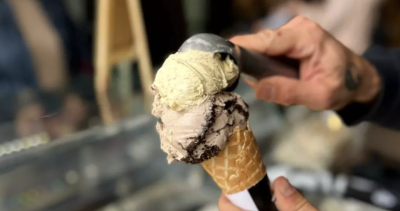Green Living: 4 zero-waste resolutions to adopt for a more sustainable lifestyle
Ah, January—the start of a new year, a clean slate, and an opportunity to reinvent yourself. And while upping your fitness regimen, giving up a vice, and committing to self-care are all worthwhile endeavours, 2017 proves an opportune time to reevaluate your impact on the environment as well.
Interested in reducing your carbon footprint for good but have no idea where to start? We asked Jacquie Rolston, founder of Zero Waste Club Vancouver—a community group that conducts ecofriendly potluck and DIY workshop events—for her beginner tips on leading a more sustainable lifestyle.
Eliminate plastics
If you haven’t already made an effort to rid your life of plastic bags, to-go cups, and water bottles—items that Rolston identifies as “the big three” of harmful, nonbiodegradable plastics—now is a good time to start. Disposable straws should also be removed from your everyday routine.
“Most of it is telling your waiter or your barista that you don’t want something—and being faster than them,” Rolston notes by phone. “Because most of them will do it out of habit.”
Invest in durable totes, glass or stainless-steel vessels, and reusable straws instead. Single-use wet wipes, many of which contain plastic fibres, and microbeads—tiny bits of plastic found in various exfoliators, scrubs, and cleaning products—should be avoided at all costs, too.
Say no to takeout
Ditch the plastic and Styrofoam carry-away boxes at your favourite restaurant and bring any leftovers home in reusable containers. “I carry a little kit of cutlery and chopsticks in my purse and try to have Tupperware with me all the time,” Rolston says.
The zero-waste advocate explains that most businesses are willing to accommodate your requests. Some, however, may refuse to package food in provided vessels. In these cases, it may be best to avoid the restaurant altogether. “You’re going to be talking to businesses a lot more,” Rolston says. “You have to get used to saying no to waste.”
Revisit recycling rules
The more the three Rs of the environment are embraced, the more sophisticated municipal recycling programs are becoming. Therefore, it doesn’t hurt to regularly review your neighbourhood’s guidelines to familiarize yourself with what can—and cannot—be recycled and where. You may be surprised by what you discover.
“I live and breathe this stuff, and I was recycling wrong,” Rolston reveals. “So just make sure you brush up on your recycling knowledge.”
Plastic grocery bags should be dropped off at various collection depots and retail shops, for example, where they are shipped off and remade into composite lumber, containers, and other items, while cereal-box liners may often be left curbside.
Ask for help
It can be intimidating to transition into a more sustainable or zero-waste lifestyle, but you don’t have to go at it solo. “Don’t do it alone,” Rolston stresses. “There are more people doing this than you would imagine.”
Look to groups like Zero Waste Club Vancouver or the Vancouver Bulk Sharing Community and blogs, Instagrammers, and books for guidance. Most importantly, enjoy the process—try picking one skill to master over a week or month, for example, and then adding another one—and don’t sweat it if you’re not leading a 100-percent-green lifestyle at all hours.
“If it’s cheaper to get a bag of apples and you’re on a tight budget, then let that one go,” Rolston says. “Every bit of waste that you refuse is not going to the landfill, and that’s a win. So don’t beat yourself up.”















Comments